Most people generally know what it means when a dog growls. When you hear a dog growling, it can be very frightening. That's because growling is often the first sign of aggression seen from a dog. It is a warning that a dog might bite, so it's important to be very careful near a growling dog. For this reason, it's important to understand why your dog is growling so you can figure out the degree of aggression and the best way to deal with the problem.
Why Does a Dog Growl?
Dog growling is a form of communication. Your dog is not able to tell you when it's unhappy or uncomfortable with words. Most dogs will first use their body language to communicate with you. If you are unable to pick up on the more subtle clues, it may growl to let you know how it feels. The most common reasons dogs growl are fear, possession aggression, territoriality, and pain.
Some dogs also growl when playing. Play growling is often seen when two dogs are having a safe, healthy play session. In this case, the growling does not necessarily indicate aggression. However, it is still important to watch your dog's body language and make sure play growling doesn't lead to a dogfight. You may also notice play growling when you play tug-of-war with your dog. Gentle growling is not a bad sign unless your dog is escalating and showing other signs of aggression. If your dog nips at your hand, lunges at you, or the growling gets very threatening, it's important to end the game.
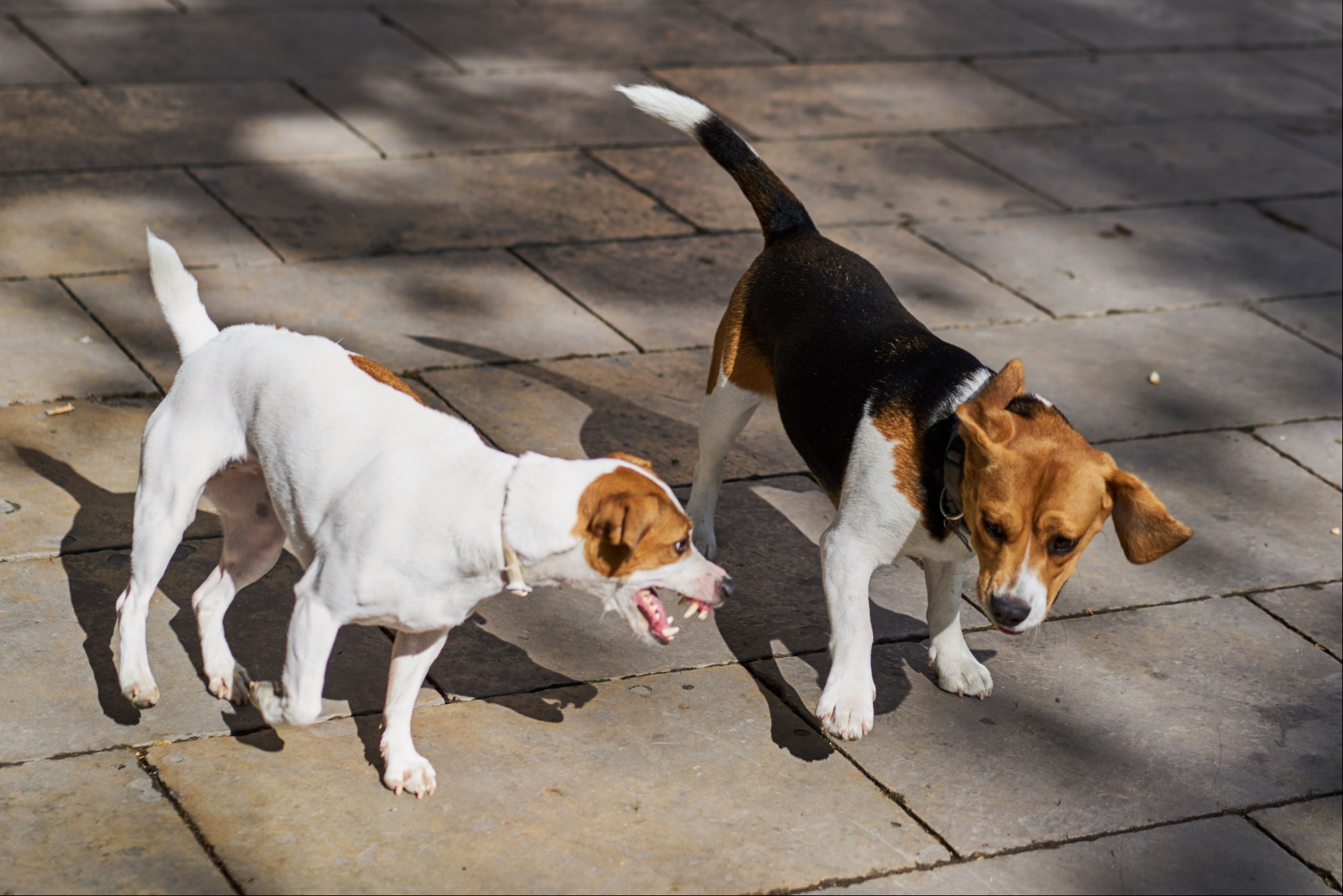
Potential Causes of Growling
Figuring out exactly why your dog is growling is the first step in preventing escalating aggression. A growling dog is warning you that it may bite. Since we don't have a dog-to-English dictionary, the following can help interpret what a growling dog is saying:
- Fear: Dogs often growl when they are afraid. A good example of this can be seen with dogs who are afraid of strangers. When a stranger approaches, a fearful dog may growl. This is its way of saying, "Back off."
- Possession Aggression: Some dogs growl over their possessions, such as a bowl of food, a toy, or a rawhide bone. When a dog growls when someone approaches it while it's eating or chewing a bone, it suggests, "This is mine, and I'm not sharing!"
- Territoriality: Sometimes dogs growl when they feel the need to defend their territory—think of the mailman approaching the door. When the dog sees someone who it believes doesn't belong on the property, it wants to let them know that they're overstepping their boundaries. Dog growling in this instance means, "Hey, you don't belong here, and I'm willing to protect my people and property!"
- Pain: Dog growling may also occur due to the pain of an injury or illness. There is usually a combination of things going on here. First, there is the unexplained pain going on in their bodies. Very often, this is followed by concerned people poking, prodding, and trying to move them. This means on top of the pain, dogs are experiencing a great deal of confusion about what is happening. The dog may anticipate that the people trying to help it will cause more pain and react unexpectedly, even with people it usually trusts. In this case, a growl usually means, "I'm in pain and afraid, and you need to stop hurting me."
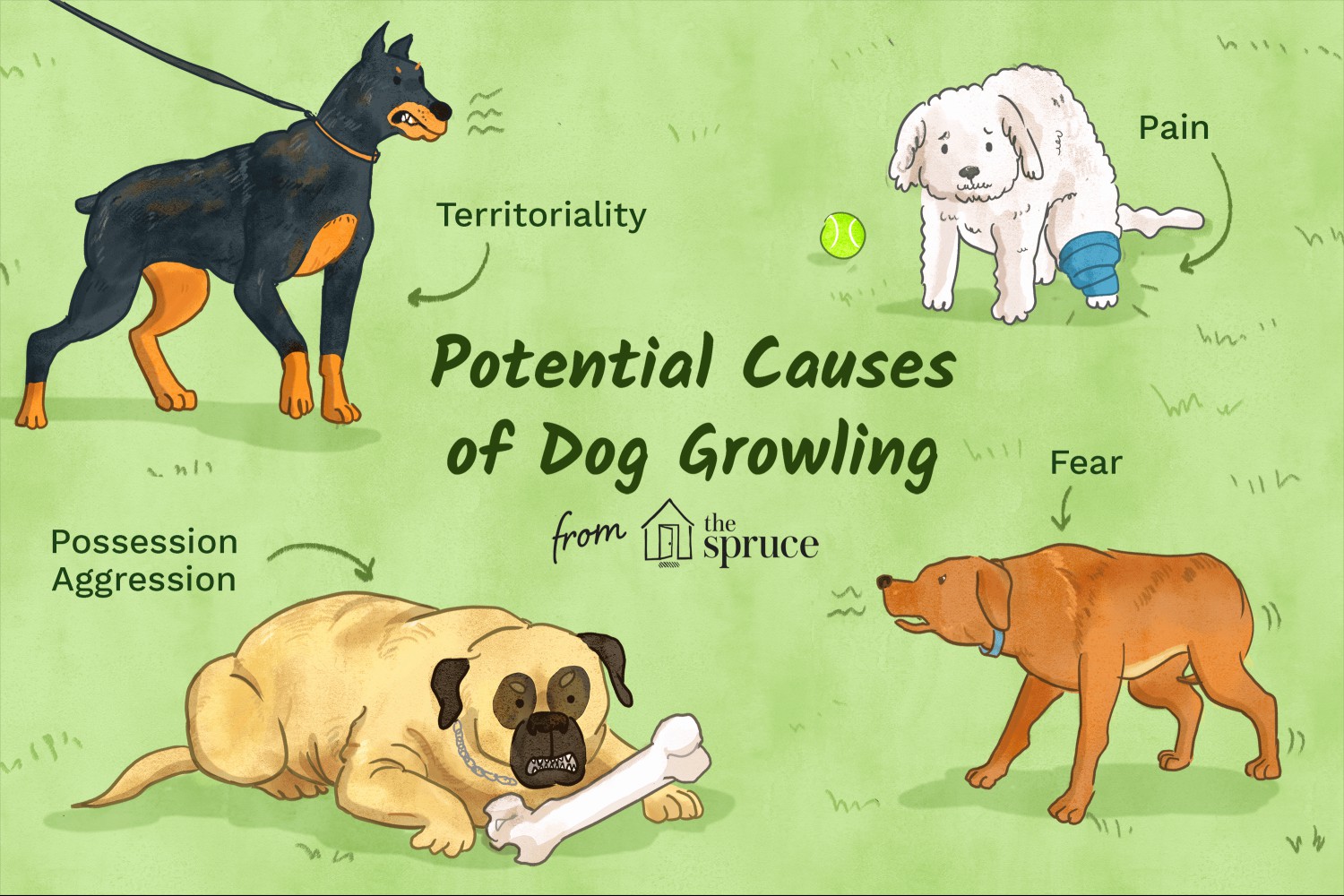
If you consider the context, you may be able to better deal with a growling dog. However, do not put yourself in harm's way, especially if the dog is not your own. You may decide to consult a dog trainer or behaviorist if your dog's growling turns to snapping or biting.
Related Article
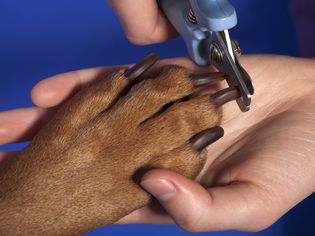
How to Handle Aggression in Dogs During Nail Clippings
Does your dog get aggressive—maybe even try to bite—when getting his or her nails trimmed? Many

How to Stop Your Dog From Whining
While it may seem like your dog is whining for no reason, he is trying to tell you something. Like
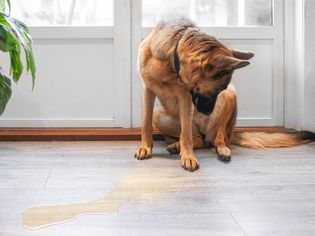
Why Do Dogs Pee When They're Excited or Fearful?
If your house-trained puppy or recently rescued dog pees on the floor when people come over or when

Learn How to Prevent Fear Aggression in Dogs
While dog bites can happen for many reasons, fear aggression is a common concern. Just like humans,

Can Dogs Eat Bread?
If you were to raid the pantry of your average American kitchen, you would in all likelihood find a

Can Dogs Eat Kale?
Found in smoothies, salads, and various health foods, kale is considered a superfood for humans, wi

Can Dogs Eat Eggs?
Breakfast is the most important meal of the day, and eggs are a cheap, nutritious staple to help yo

Can Dogs Have Cranberry Juice?
Cranberries are rich in nutrients and antioxidants that have been touted as playing a role in every
About Ask a Paw
We are a premier digital platform committed to delivering high-quality content to our readers. Our mission is to provide accurate, reliable, and engaging information that adds value to our audience's daily lives.
Our team consists of experienced content creators and subject matter experts who uphold the highest standards of professionalism. In an era of information overload, we curate content with care, ensuring our users receive only the most relevant and trustworthy information.
Beyond just reporting facts, we focus on depth and context. Through expert analysis, comprehensive research, and clear presentation, we help our audience gain meaningful insights and make informed decisions.
We take pride in being a trusted information source for our growing community of readers. Our user-first approach means we continuously adapt to provide content that meets our audience's evolving needs and interests.
Innovation and excellence drive everything we do. We're committed to improving our platform and services to deliver the best possible experience for our users.

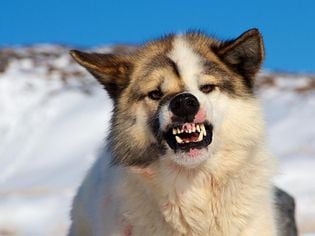
Comments on " Understanding Dog Growling" :